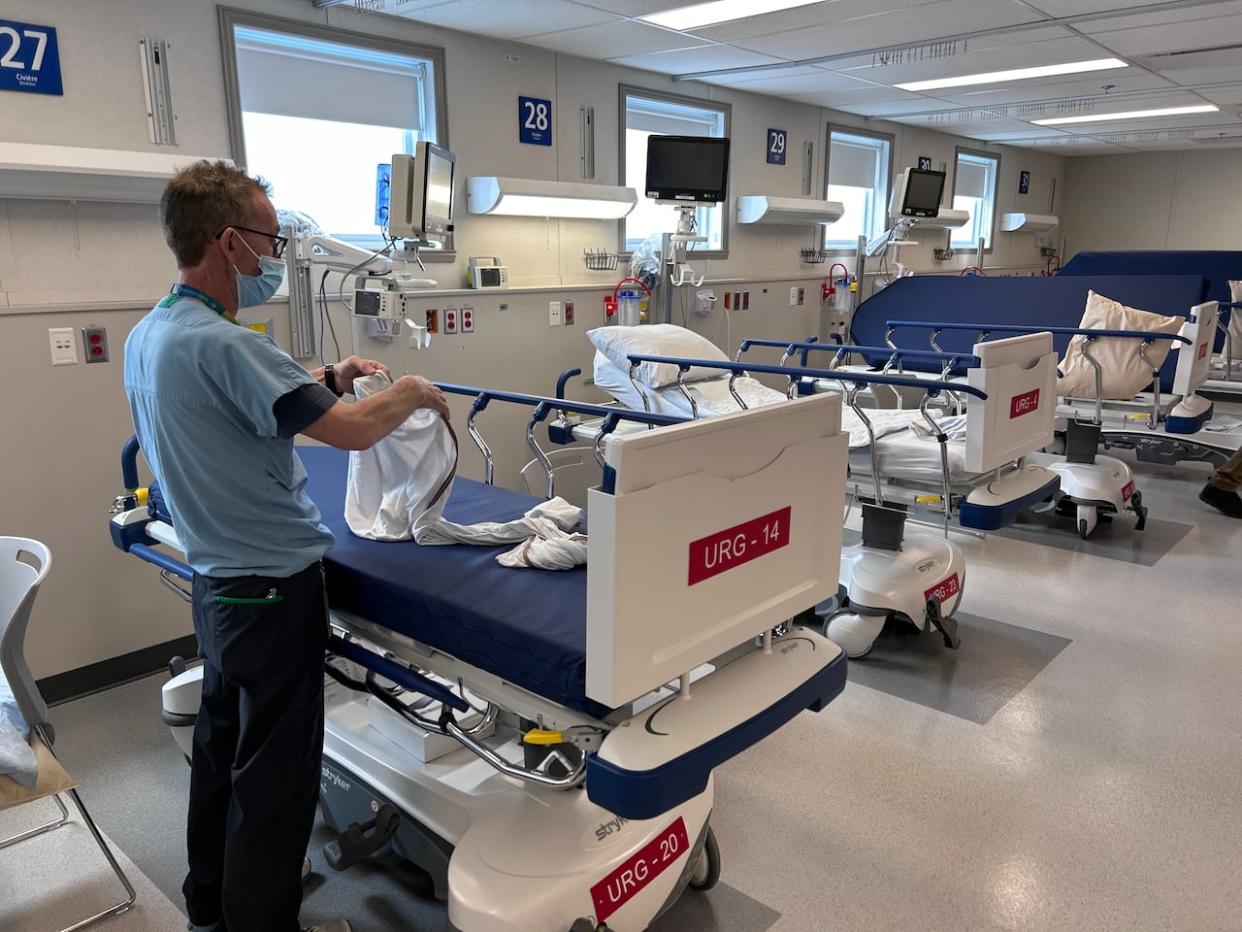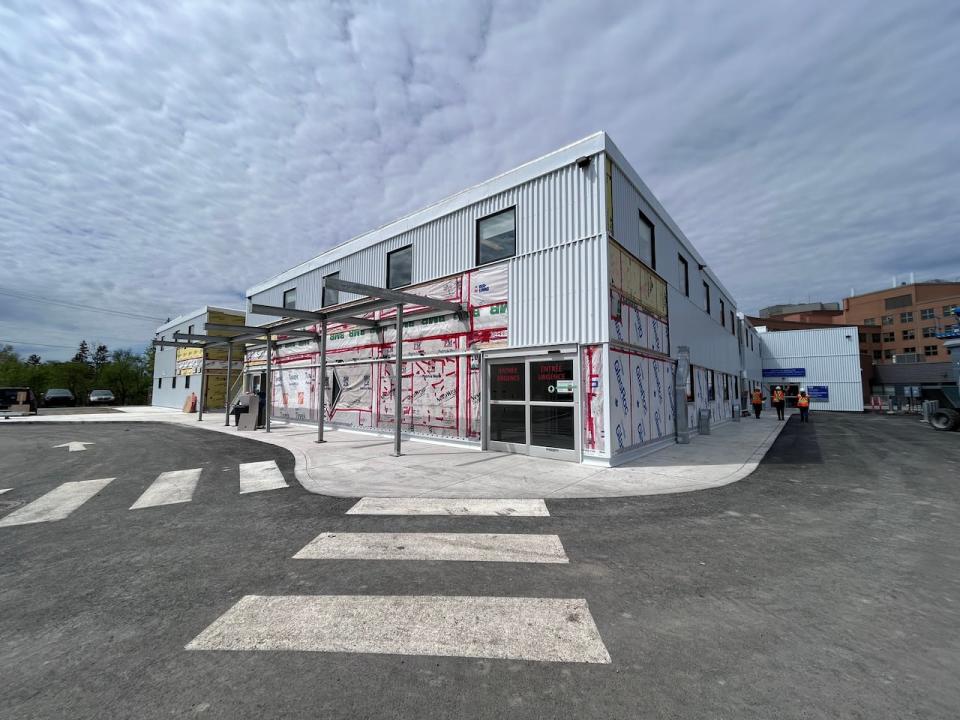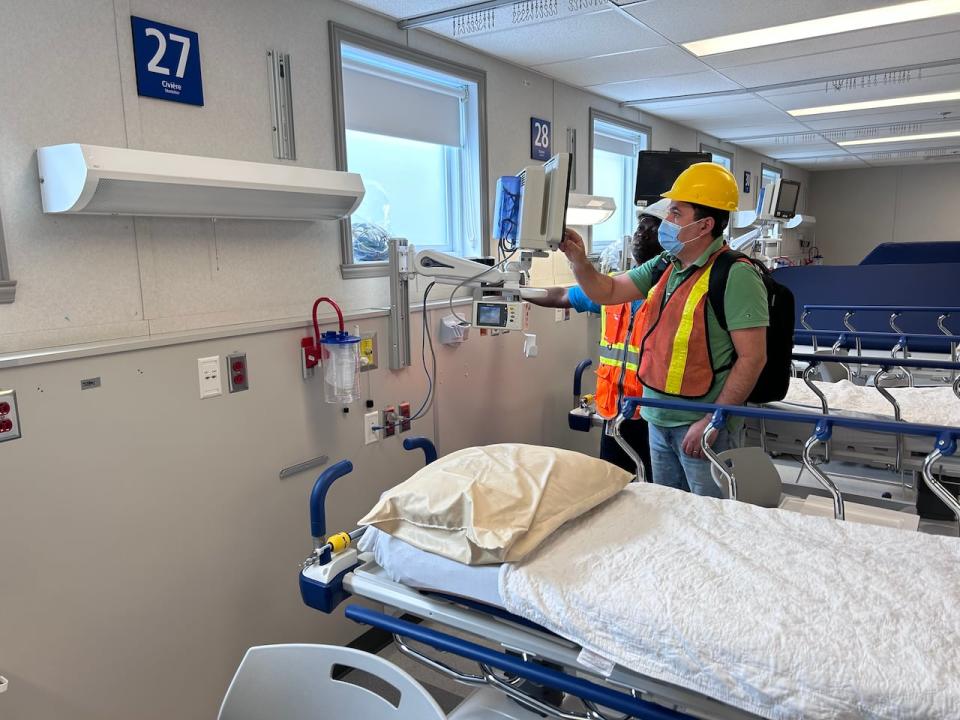Lakeshore General Hospital opens interim ER to maintain services during construction

For the next 24 hours, staff at Montreal's Lakeshore General Hospital are going to be busy as the emergency room and all of its patients are moved to a new, temporary facility.
"Some of the equipment is still arriving," said Dan Gabay, president and CEO of the West Island health agency, the CIUSSS de l'Ouest-de-l'Île-de-Montréal.
"We're hoping to have a full start on Wednesday, and do some fine tuning in the week after."
The modular emergency room, built in seven months, provides a lot of sunlight, and the open space is designed so nurses can easily see their patients, he said. The structure was installed in the hospital's parking lot.
The old ER was built in the 1980s, and not only are there air exchange issues, it was built in a way that doesn't allow nurses a proper line of sight on patients, said Gabay.
The revamped ER is slated for opening in 2028, with major renovations beginning next year.
During construction, a temporary space was needed, he said, noting it will have the same amount of stretchers, but a new workflow.

The modular ER was built in seven months as the hospital readies for a 10-year renovation project which will continue even after it reopens to patients in 2028. (Davide Gentile/Radio-Canada)
The more spacious, modular ER has allowed for some services to be reconfigured for the better, said Gabay.
Quebec Health Minister Christian Dubé was on site Monday, touring the temporary ER. He said it is an important day for the West Island.
"I think we have been able to prove in the last year that we could find a more efficient way to renovate our infrastructure," he said.
"This new emergency was put in place in seven months, and I think this is quite an accomplishment for the team."

Crews have been testing the new equipment to ensure it is ready for the patients set to arrive on Wednesday. (Davide Gentile/Radio-Canada)
In an effort to improve efficiency, there will be a family clinic attached to the ER. The University-affiliated Family Medicine Group is a project in collaboration with McGill University. It will allow triage to redirect patients who don't need ER services, the health minister said.
"I think that's quite the change to make sure we put the patient at the right place with the right professional," said Dubé.
In recent years, some Lakeshore employees have spoken out about alarming situations, such as not having enough staff for the number of patients in the ER.
Last year, Dubé commissioned an independent report on the hospital's ER, which recommended urgent renovations to protect patient safety. It's not uncommon for the ER to exceed 200 per cent capacity.
On its busiest days, the ER is so stretched for space that patients on gurneys line not just every hallway, but even the narrow passageway in front of the nursing station.
More recently, the family of an 86-year-old woman who was found dead on the ER's floor in 2021 is suing the CIUSSS de l'Ouest-de-l'Île-de-Montréal for $1 million. The lawsuit also names an ER doctor and a nurse.
The CIUSSS says on its website that the new permanent ER will be a three-storey building that includes 38 stretchers in cubicles, a 12-bed, short-term hospitalization unit for physical health and a six-bed, short-term mental health unit.
"Once completed, the new emergency department will be a modern, functional and integrated space that maximizes the care and services provided and supports patients' recovery," the website says.


